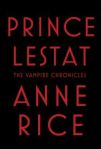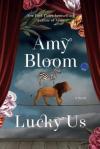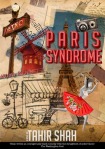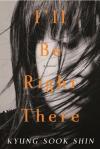 Almost 30 years after the defeat of Akasha, the Queen of the Damned responsible for the massacre of thousands of her own kind, there is a new crisis among the Undead. A mysterious Voice has been speaking to various vampires, young and old, provoking them to incinerate others of their kind. Meanwhile, the ancient ones whom the others depend on have hidden themselves away invarious places around the world, ignoring the pleas of the young ones to come together to prevent the destruction of their tribe. Only the strongest have a chance of answering the essential questions – who is the Voice, what is his motive, and how can he be stopped?
Almost 30 years after the defeat of Akasha, the Queen of the Damned responsible for the massacre of thousands of her own kind, there is a new crisis among the Undead. A mysterious Voice has been speaking to various vampires, young and old, provoking them to incinerate others of their kind. Meanwhile, the ancient ones whom the others depend on have hidden themselves away invarious places around the world, ignoring the pleas of the young ones to come together to prevent the destruction of their tribe. Only the strongest have a chance of answering the essential questions – who is the Voice, what is his motive, and how can he be stopped?
Prince Lestat was written in an entirely new way than Anne Rice’s previous books in the Vampire Chronicles series. Rather than being narrated by one principle character, each chapter jumps to a new narrative connected to the main plot. There are, of course, the ever-enduring personalities – Lestat, Louis, Marius, among others. But there is also a multitude of new or rarely seen characters, sometimes characters who were only mentioned in passing in the first books of the series. It is both surprising and pleasant to see these faces again after so much time.
While the structure of the book may be new, the main theme of Prince Lestat remains that which has pervaded all of the series – that is, the question of a vampire’s (and thus, humanity’s) inherent good or evil nature. The Voice that disturbs otherwise peaceful vampires demands the destruction of others, and some see little wrong in doing away with what they see as solely evil creatures. Others insist that this is arcane thinking, that no creature, even Undead, is inherently damned.
A new theme I noticed is a thinly-veiled hostility toward organized religion. This is no surprise to me, considering Rice left the Catholic Church a few years ago, disillusioned by its hypocrisy. She also has a progressive stance on science, which is also heavily reflected in the book.
In general, the book is very much representative of the world today, in which science tries to overcome superstition and people try to overcome their fears and assumptions in order to make a more peaceful world for everyone.
TL;DR: While Prince Lestat cannot live up to the first five books in the Vampire Chronicles series, it is a welcome addition after a 10 year wait.












